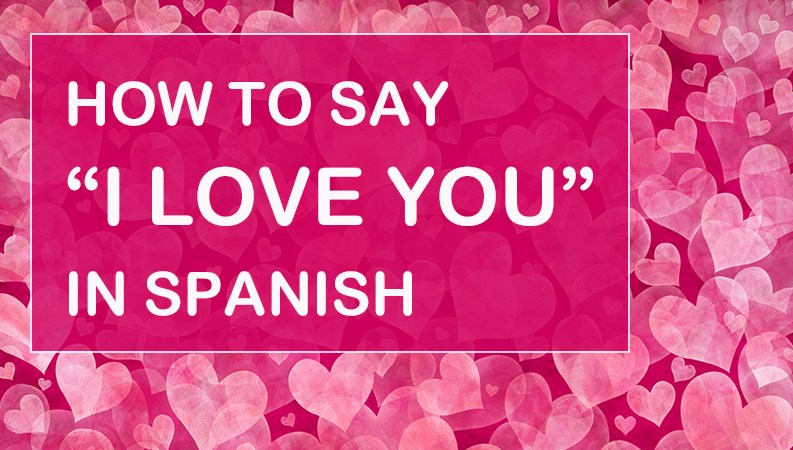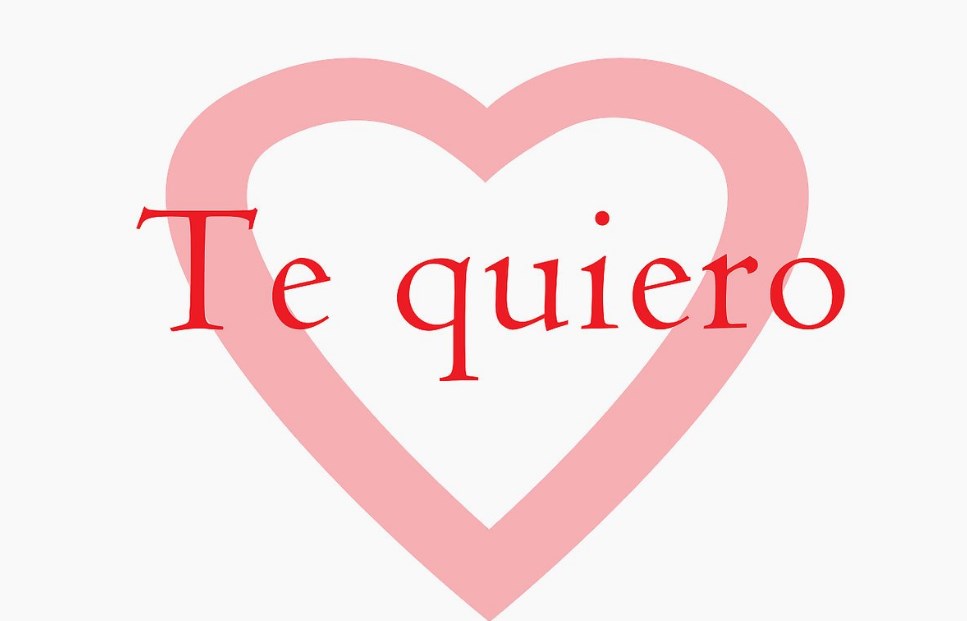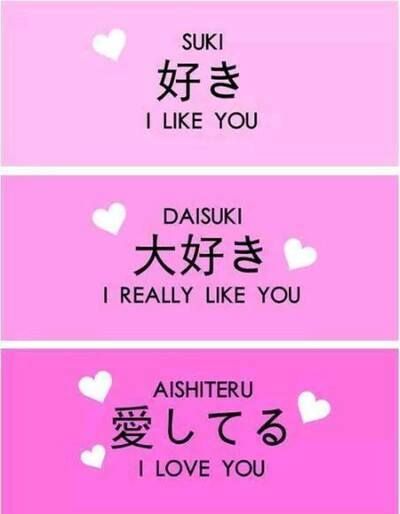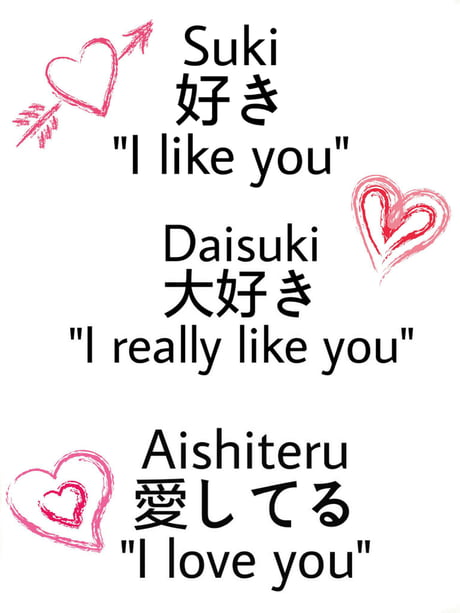When you love someone, you want to find as many ways to show them as possible. But sometimes, simply saying, “I love you” just doesn’t feel like enough. After all, how could three small words—which you tell your partner regularly, love you in japanese as it is—capture the depth and meaning of what you really feel for them? Love with You Quotes Learning how to say “I love you” in another language. Love you in Spanish, Japanese, Korean, French
No matter your exact relationship status, your soul mate gives you all sorts of warm and fuzzy feelings and you want them to know it. That’s why finding new ways to show how much you care can, like sending them adorable romantic quotes about the love you feel for them, can be so meaningful.
In lieu of your standard “I love you” text, consider sending the person you love one of the romantic quotes below or DMing them a love quote you found on Instagram. It’s a fun way to switch things up and fan those romantic flames even more.
love you in Spanish
The Spanish language and culture are rich in passionate language and ways to express affection. But what’s the best way to tell someone “I love you” in Spanish?
After all, in English, we tend to overuse the word “love”. We love this show, and we love that book. We love our parents, our kids and our spouse. love our friends, we love our jobs.
And even though all of those forms of “love” are different, they’re expressed with the same word: “love”.
In Spanish, that’s not the case.
You have many options for expressing your affection! In fact, it’s one of the things I like about Spanish that English is missing. You can concisely share your like, love or even enchantment in Spanish, using different expressions.

How to Say “I Love You” in Spanish
As I mentioned above, how to say “I love you” in Spanish depends on the context, situation and what or who you’re talking about. Most people have learned that te amo means “I love you” in Spanish, and it does. But this is a very serious, deep love. It’s used mostly between spouses and when announcing your love, such as while proposing.

Another way to say “I love you” is te quiero. Here’s where those degrees of affection come in. It literally means, “I want you,” but that’s a poor translation, in my opinion. This phrase doesn’t quite translate at all in English, because we have no equivalent at that degree. To say “I want you” in English has a lusty sound to it, love you in japanese and not very romantic. But in Spanish, a better translation is “I want you in my life.” It’s a step down from te amo, and usually said when you’re in a committed relationship, but not necessarily married (or at least, not yet).
And with both phrases, you can make them more passionate by adding mucho (“very much”). Te amo mucho or te quiero mucho both mean “I love you very much.”
A less direct way to express your love is to say Significas mucho para mí. This means “You mean so much to me.”

Saying I Love You in Spanish: Degrees of Affection Matter
We’ve mentioned that there’s a limited number of ways to say “I love you.”
If you’re considering using one of them, there are a few important things to keep in mind.
The most important fact to remember is that the terms are not interchangeable. That is, they’re not suitable for everyone on your love list!
And although there are only two main ways to say “I love you,” there are many other ways to express your love. Which expression should you use? In Spanish culture, the degree of familiarity or affection determines how you express your fondness for another.
If you’re with family? Use one term.
Dating? There’s an expression to show love to your novia (girlfriend) or novio (boyfriend).
In a committed, serious relationship? There’s a romantic phrase to declare your love in that case, too.
The Big Debate: Te Quiero or Te Amo
Okay, so here’s the unvarnished truth: There are basically two ways to say “I love you” in Spanish.
Te amo (I love you) is one.
Te quiero (I love you) is the other. (This one literally means “I want you” but it’s used to say “I love you.”)
With only two ways to say the Three Big Words, the choice should be simple, right?
You’d think it would be—but it’s not as easy as you’d imagine.
How to Say I Love You in Japanese
In Japanese, there is not one basic way or expression of how to say “I love you“. Japanese people tend to use a couple of different phrases mostly depending on the length and therefore depth of their relationship and love for the other person. love you in japanese
In this blog post, I will cover 8 different phrases. First the 3 basic phrases for love “aishiteru“, “daisuki (desu)“, and “suki (desu)“. Then, we will look into 5 other ones that are less often used in real life but can often be encountered in anime, manga, and Japanese dramas. Here they are:
- aishiteru (愛してる)or aishitemasu (愛してます)
- daisuki (大好き) or daisuki desu (大好きです)
- suki (好き) or suki desu (好きです)

1. Aishiteru – I Love You (With All My Heart)
The word “Aishiteru” (愛してる) is often considered the default Japanese translation for the English phrase “I love you“. However, the word is a really deep expression of love and rather means “I love you with all my heart“, “I love you deeply“, or “I really love you from the bottom of my heart“.
“Aishiteru” (愛してる) and “Aishiteriru” (愛している) are both correct and have the same meaning “I love you“. The latter one, “Aishiteiru” is more formal and actually the grammatically correct spelling of the word, but nowadays “aishiteru” is more commonly used in spoken and written Japanese.
2. Daisuki – I Love You (So Much)
“Daisuki” (大好き) means “I love you“, “I love you so much“, or “I really love you“. It consists of the kanji dai 大, meaning “big“, and suki 好き which means “like” or “love“. So put together you get “big love” or in more natural English “really like/love“. It’s the closest to the English “I love you“.
The word can also be used when talking about a hobby, food, or other things you really like. So it is very similar to the English phrases “I love (doing…)“, “I really like (doing…)“, or “I’m really into…“.
You can say “I love you” more politely by adding the word desu (です) after daisuki (大好き). “Daisuki” (大好き) and “Daisuki desu” (大好きです) essentially have the same meaning. The only difference is that the latter sounds politer and more formal. Maybe good when confessing your love for the first time.

3. Suki – I Love You (Confessing Your Love)
The word “suki” (好き) is the last one of the three basic words and phrases that are used to say “I love you” in Japanese. It is the most neutral word and therefore also the most commonly used one. It means both “I love you” and “I like you” and is often used as the first confession of one’s love.
“Suki” is tricky because it is used to say “I love you” but it can also mean “I like you“. When Japanese people have just fallen in love or when they started to like someone they often say “suki” (好き). It’s the appropriate phrase when confessing your love and at the start of a relationship.
Same as with daisuki (大好き), suki (好き) is also used when talking about a hobby, music, food, anime, manga, and other things you like. So it can also be translated into English as “I like (doing…)” or “I’m into…“.
The politer version of “suki” (好き) is “suki desu” (好きです). While both phrases mean the same, either “I love you” or “I like you“, adding desu (です) will make you sound more formal and respectful. So use this phrase in formal situations or when confessing your love officially for the first time.
I Love You in French
Every day is the perfect time for falling in love over and over again. Wherever you are in the world, no one can deny the fact that hearing the words Je t’aime, or I love you in French sounds 100% more romantic than plain old English. With this being said, this special article will walk you through some heart-fluttering and soul-awakening love phrases in the French language.
May it be in music, poetry, art, and even culture, France remains to be considered as one of the most prominent countries usually associated with terms like love, elegance, and passion. One of the reasons behind that is because historically, France was the first to celebrate the notion of romance and debunk the myth that true love does not exist. At that time in the 12th century, the people finally embraced the meaning of love through real courtship, songs, dances, and literature.

French has always been known as the language of love. Perhaps it has something to do with Paris or the way the language sounds, or perhaps it’s because the French were historically the first to really embrace the concept of falling in love before marriage.
It is not surprising, then, to discover that there are many different types of ways to say “I love you” and express your love in French.
Here is one example: Have you ever played the game with a flower, where you pick off the petals one by one and say, “He loves me. He loves me not”? Well, in French there are five different stages of love in this game in French, from “Not at all” to “He’s crazy about you.”
Ah, love! Some say it was the French that invented love. The famous French courts were the first to start talking about passionate love and marriage for love.
We all know that love comes in phases. Let’s look at a bunch of different phrases for “I love you” in French.
Je t’aime bien – I like you. Yes, it translates directly to “I love you well.”
Je t’aime – I love you. This can be used with your lover, as well as with friends and family.
Je suis amoureux/amoureuse de toi – I am in love with you. This should only be used with your lover.
Je t’aime beaucoup – You mean a lot to me. It doesn’t have to do with love: You would be sad if you heard this from your lover.
Also Read :10 Reasons Why Young Women Fall in Love With Older Men
I Love You In French
If you landed on this post, then it’s safe to say that perhaps you have finally met your match, and you are now starting to wonder how exactly to say those three little words that can change both of your lives. And for us here at Ling App, we definitely understand how important it is to say the right expressions, which is why we make it a point to review and cross-check all our translations just for you.
Ready to make your special someone go head over heels and fall further for you? Whether you prepared a romantic picnic or you just want to say it out loud once and for all, express you are sincere I love you in French today using our handy list of phrases below.
| French | English | When/ how to say the expression |
| Je t’aime | I love you | This is the most standard way of professing love for your other half. Never use this for expressing love to your friends. |
| Je t’adore | I adore you | If you want to vividly express how much you worship your partner, you can use this as a substitute to Je t’aime as it is stronger. |
| Je t’aime bien | I like you | Like and love are two different things, which is why if you feel that you care for the person, but you still do not think it is love, use this phrase instead. |
| Je t’aime beaucoup | I am fond of you | When speaking to your friends, you can use this to tell them how much you like them. |
| T’es l’amour de ma vie | You are the love of my life | This is used to express your profound passion and love for your special someone. |
Related : Quotes About I Love You Quotes and Love Quotes for Any Situation
How to Say I Love You in Korean – Get it Right First Time!
Translate “I love you” in Korean through an app, and it’ll tell you the answer is 사랑해 (saranghae). And 사랑해 (saranghae) does mean “I love you” — but it might not be the right phrase to use!
Why? Because Korean has a hierarchical way of speaking. i love you korean That means you change how formally you speak depending on who you’re talking to and the situation.
Besides that, Koreans only recently started to be more open with saying “I love you.”
The younger generations will say it more often now, but still not as often as Western cultures might. And older generations, or even parents to kids, may never say it at all.
So before you decide to throw around such an important sentiment in Korean, i love you korean learn the appropriate way to say it!

“I Love You” in Korean (Standard)
사랑해요 (saranghaeyo) is the standard way of saying “I love you” in Korean. i love you korean The dictionary form of the verb “to love” is 사랑하다 (saranghada). A “hada” verb has a regular conjugation, so it should be easy to use in different situations. i love you korean In the present tense, it becomes 사랑해요 (saranghaeyo).
You might notice that the words “I” and “you” have been dropped. You can say these if you want to, making the phrase:
“저는 (person’s name)씨를 사랑해요”
“jeoneun (person’s name)ssireul saranghaeyo”






